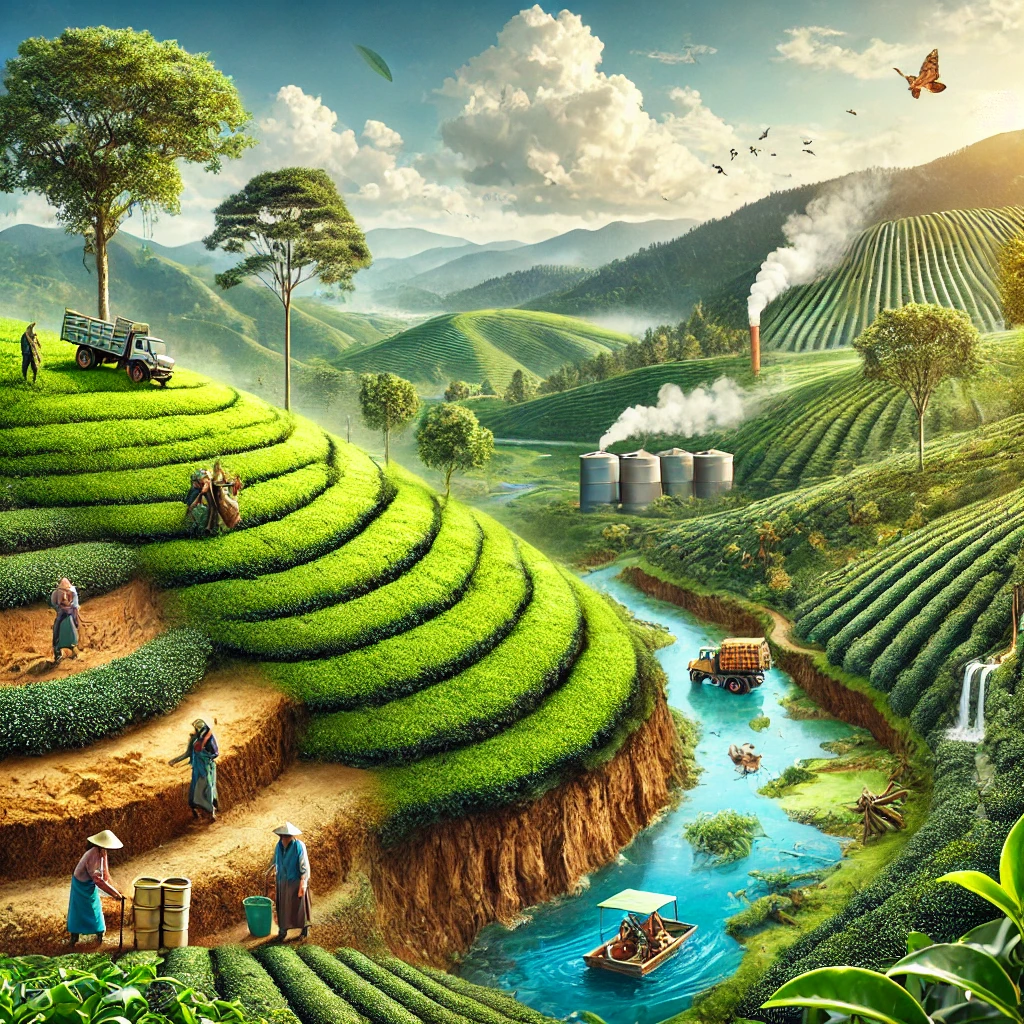Introduction: The Environmental Impact of Tea Production
Tea is one of the most widely consumed beverages globally, but the environmental impact of tea production is a growing concern. From deforestation to pesticide use, the tea industry faces significant challenges that affect ecosystems and communities. Understanding these impacts is crucial for consumers who wish to make informed choices about their tea consumption.
The Process of Tea Production and Its Environmental Footprint
The journey of tea from the field to the cup begins with cultivation. Most tea is grown in monoculture systems, which can lead to soil degradation and biodiversity loss. According to the Food and Agriculture Organization (FAO), extensive tea plantations can disrupt local ecosystems and wildlife habitats. Furthermore, the use of chemical fertilizers and pesticides in tea farming poses serious risks to water quality and the health of surrounding communities.
Deforestation and Habitat Loss
One significant aspect of the environmental impact of tea production is deforestation. Many tea plantations are established by clearing forests, which not only destroys habitats for countless species but also contributes to climate change by reducing carbon sequestration. The World Wildlife Fund (WWF) emphasizes the importance of sustainable land use practices to mitigate these effects.
Water Usage and Pollution
Tea cultivation requires substantial water resources, often leading to over-extraction from local water sources. This can result in water scarcity for nearby communities and harm aquatic ecosystems. Additionally, the runoff from tea plantations can introduce harmful chemicals into local water bodies, affecting both wildlife and human populations.
To learn more about sustainable water practices in agriculture, check out this article from the United Nations.
Sustainable Practices in the Tea Industry
Fortunately, there is a growing movement toward sustainable tea production. Organic farming methods, agroforestry, and integrated pest management are just a few practices that can reduce the environmental impact of tea production. Brands like Teavana and Numi Organic Tea are committed to sourcing tea from farms that prioritize environmental sustainability.
For more on how to choose sustainable products, visit Caffeine Globe for valuable insights.
The Role of Consumers
Consumers can play a crucial role in minimizing the environmental impact of tea production. By opting for sustainably sourced and organic teas, individuals can support practices that protect the environment. Additionally, being aware of certifications, such as Fair Trade and Rainforest Alliance, can guide consumers in making eco-friendly choices.
Conclusion
In summary, the environmental impact of tea production poses significant challenges that require attention from both producers and consumers. By promoting sustainable practices and making informed choices, we can enjoy our favorite beverage while minimizing harm to our planet.
For the best streaming services, explore more at Caffeine Globe, where you can find a wide range of options for your viewing pleasure.

